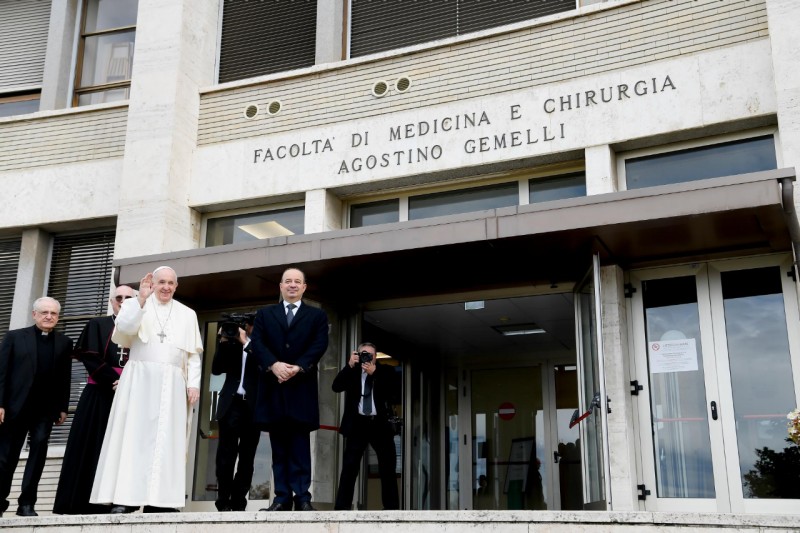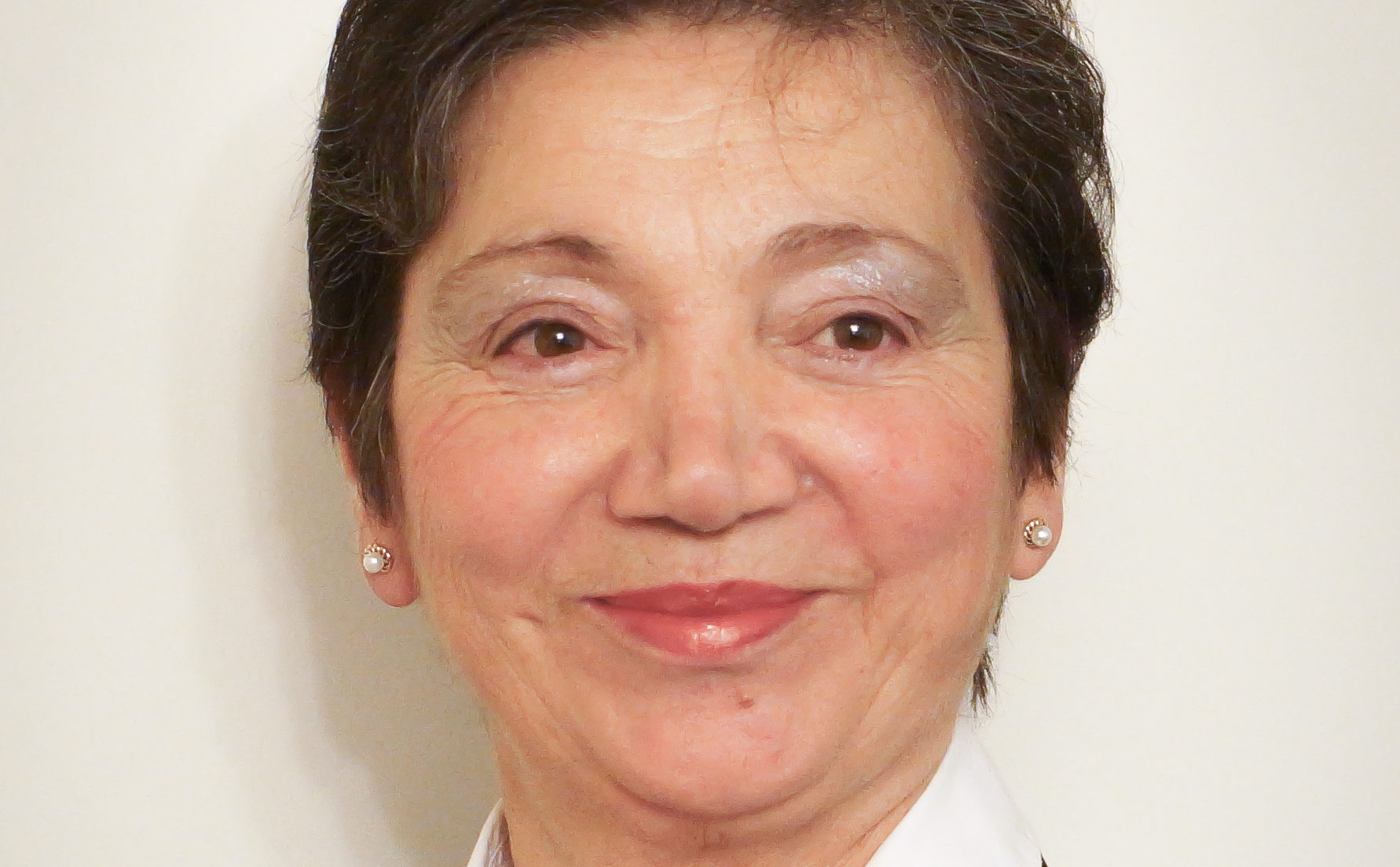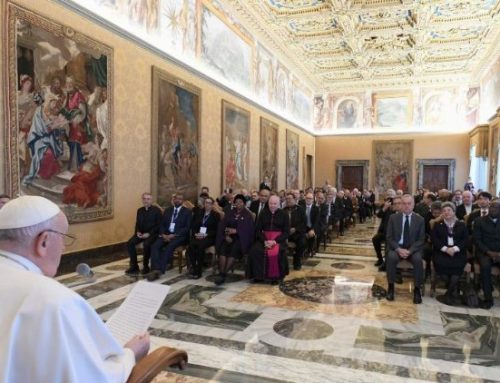Anne Lastman—
On a recent visit to the Gemelli Hospital the Holy father Pope Francis spoke about memory and what it means to remember, and His Holiness continued that it means “to return with the heart.” And what Jesus’ heart shows us is the Lord offering himself: “it is the compendium of his mercy”, and invites us to remember his goodness, which is gratuitous and unconditional, not dependent on our works.

In the field of Psychology, the memory faculty would be described as the mental processes of acquiring, processing and retaining information for later retrieval; the storage system that emerges from these processes.
This definition, whilst short, concise, informative explains the secular understanding of memory. Memory indeed is a mélange of past experiences some clearly stored and remembered, others, dimmer and more fragile. To leave the understanding of memory here would be to cheat it of its powerful place in the life of human being. Memory left at, or described as some mechanical receptacle for the collection of data about past events and trivia would diminish its centrality to human life. It would diminish what the memory is to the human being.
The Holy Father further continued “In the midst of the haste and concerns of today’s world, we are losing the ability to be moved and to feel compassion. This is because we are losing this capacity to “return to the heart,” to cherish this memory.
“Without memory we lose our roots, and without roots, we do not grow,” he said inviting everyone “to nurture the memory of those who have loved us, cared for us, lifted us up.”
What does loss of memory mean, If not the slow withdrawing from this realm of the heart. The realm of love. Does loss of memory mean that interest in those in his/her history and left behind has ceased? The memory of these continuing bonds means that the ones who have been important and passed by have left behind a memory as a gift. A bond to say that they have been present and have loved and perhaps then moved on.
And another question which is tantalizing is this. Where have all the memories gone? Where has love gone? As the loss becomes more prevalent and finally uncomprehending what has happened to great talents e.g., as designer, a violinist, as a spouse, grandfather, friend, brother. John O’Donoghue (Anam Cara) suggests that the memory is “the place where the past is gathered.” for the one whose memory has gone, has the past become so fragmented and splintered that it cannot re gather and therefore scatters into oblivion? And what happens next as we watch memory recede further and more and more, he/she settles into a world of “nothingness” a world where nothing is?
Pope Francis went on to elaborate on the concept of memory explaining it as “we remember someone or something when it touches our heart, when it is linked to a particular affection or lack of affection.” A memory has imprinted an image of the past or person or event which has remained to keep the memory alive in order to remind.
The memories of the human person must be something wonderful in order for them to have their own long term and permanent facility for storage. Could it be that an individual’s memories are a repository of his or her history? Could it be that an individual’s memories are his/her complete life and love story available for review? His/her own biography written in invisible ink? A life story with all encounters, experiences, decisions, love, all gathered to paint an original masterpiece. Without memories what would there be? A blank canvas? An empty shell? Lifeless and soul less? A vacuum
filled with emptiness.? Memories are the record written on the heart and the Lamb’s book of Life. (Rev 20:12).
The issue of memory is important as we contemplate diseases of forgetfulness, Alzheimer’s dementia, these diseases which assault the receptacle of a human’s history, of life, of love, of mercy. Of a life lived with all of its ups and downs.
Having stood by and watched a family member slowly diminish to a “nothing” a shadow or even a shell of his former vibrant musical and so very talented self, and over four years we had to stand by and watch his receptacle of his memories empty and vanish to places unknown. We stood by and watched the violinist, husband, father, grandfather not “remember” his only child – his son and his two grandchildren, his much-loved wife of over 60 years. We stood by and watched him at first speak clearly of day-to-day life, then repeat and repeat same questions and glazed look into the distance or maybe even memory of distant past. Then slowly only talk of second world war memories of holocaust. We listened to him speak about his mother and sister and brothers prior to the war and the clarity with which he remembered that life was astonishing. The minute details of daily life before the war. We have stood by and observed the degeneration of this extraordinary faculty called “memory” until he could only “remember” his baby sister (she was then in her very late years) and then nothing at all even forgetting bodily functions. Even his own immediate family, that is, his wife, son, grandchildren, no longer existed for him. A whole chunk of life, history, experiences, memories and family all gone for him. All his attachments completely gone and all which was left was dull look in his once sparkling hazel eyes.
“Your soul is the place where your memory lives.”[1] Does this mean that the more our family member loses his memory the more his soul is withdrawing from this world? Perhaps another thought would be that whilst he withdraws (for whatever his reason) from this world, he is regathering slowly in the eternal. It had never occurred to me before but maybe because of his great losses (family in Nazi Germany-ovens) he has never set definite roots on this side of life and in time of retirement and no longer busy chose to forget all. Perhaps because he had so longed to be with those departed loved ones he willed the forgetting of his living loved ones so that he could leave them without looking back.
Alzheimer’s is a way of permanently forgetting. O’Donoghue suggests that as people age there is more time to revisit and enjoy the memories, but I wonder if Alzheimer’s is really the desire of someone who does not want to live many years remembering sorrow, pain, disillusionment, regret. No joy enmeshed in this. Is it perhaps the permanent forgetting, the response of the soul in pain? The medical world would say this is lunacy, yet I wonder if dementia, Alzheimer’s and other “forgetting” diseases are not a self-prescribed medicine and therapy against the slowing down of body and therefore an increase in remembering of past memories but rather intentional slowing to forget. Czeslaw Milosz’s poem on old age (cited in Anam Cara, p 215) has a line, which is descriptive of Amnesia/Dementia.
“But I am like someone in a window who draws aside a curtain to look at a feast he does not comprehend.” Could forgetting be the overwhelming response to the seeing of too many episodes of sadness and death and not recognising or “comprehending” the episodes of joy and life and the feast?
The Holy Father’s, “The Heart of Jesus heals our memory because it brings it back to the foundational affection. It roots it on the most solid foundation. It reminds us that, whatever happens to us in life, we are loved.”
We are all children whom the Father loves, he said, brothers and sisters “for whom the Heart of Christ beats,” and every time we go back to that Heart, we find we are “rooted and grounded in charity.”
Thus, the Pope invited all believers to cultivate memory, which is strengthened when we are face to face with the Lord, “especially when we allow ourselves to be looked at and loved by Him in adoration.”
And he invited us to also cultivate the art of remembrance, amongst each other, treasuring the faces of those we encounter.
“In the hustle and bustle of everyday life we risk letting things pass without leaving a trace” he said, urging us to remember the faces, the smiles the good words we have received during the day: “They are memories of love and help our memory to find itself again.”
The Holy Father underscored the
importance of these memories in hospitals for example, of how they can give
meaning to a sick person’s day. They help us heal, he said, they are good for
the heart, and he called for a “therapy of memory.” A therapy which helps us to
keep alive the memory of our past life and associations. A memory which helps us to continue precious
bonds.
[1] O’Donohue, J. Anam Cara. Spiritual Wisdom from the Celtic World. (London: Bantam Press, 1998) p214










